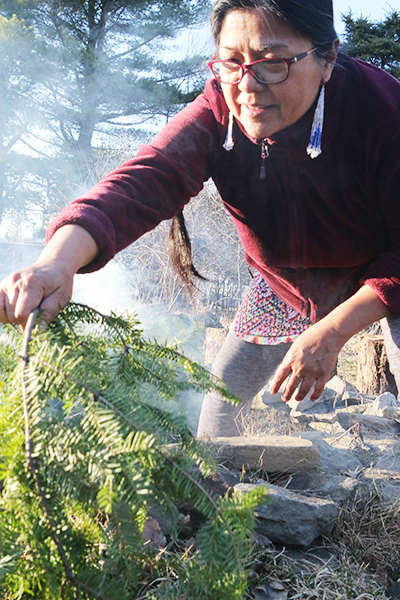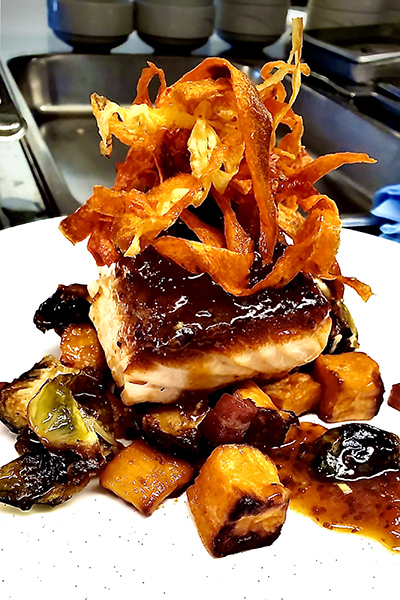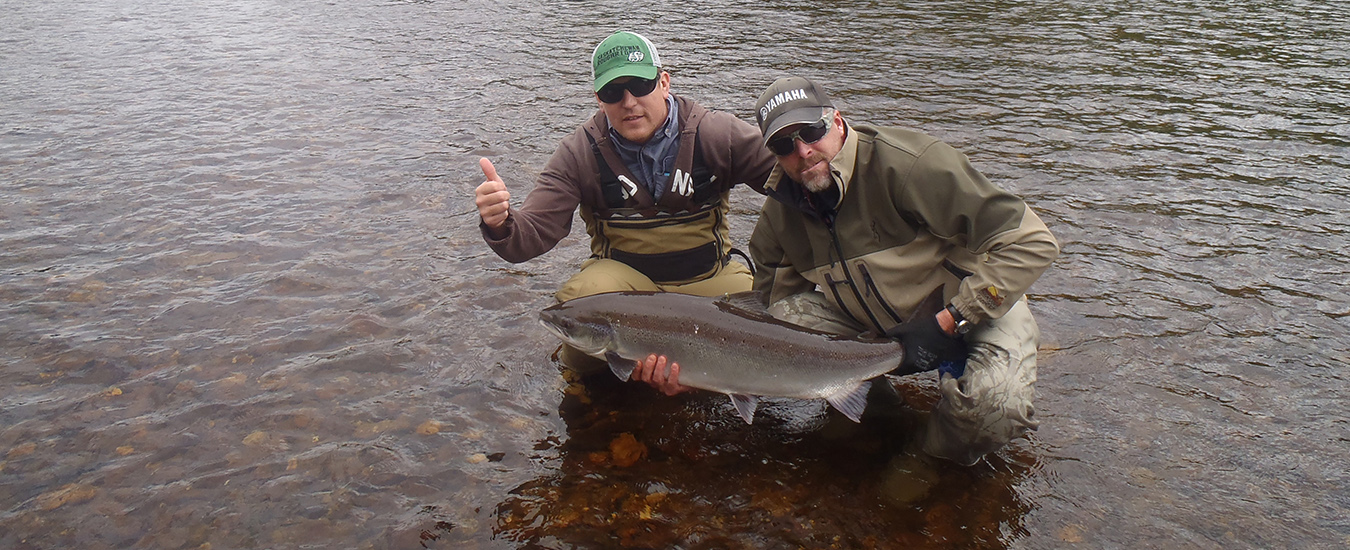New takes on an old New Brunswick standby
By Sandra Phinney
What do “alevin” and “sac fry,” “parr,” “smolt,” and “grilse” have in common? They are names for the different life stages of Atlantic salmon (Salmo salar), considered by many as the king of fish.
Debbie Norton would be the first to agree. Her great-great grandfather settled on the banks of the Little Southwest Miramichi River in NB in 1823. In the early 1900s, her great grandfather started hosting sport fishermen from around the world. Seven generations later Debbie, along with her husband Dale and their family, continue the tradition at Upper Oxbow Adventures.
Debbie recalls one morning when son Bob stepped out of the veranda at 5:30 a.m. to the telling sounds of the high pitch scream of a Hardy “St. John” reel. “Out of the mist appeared the silhouette of Frank Somers, a seasoned angler,” Debbie says, “lathered in sweat from the battle of fighting a 30-pound Atlantic salmon.” Gasping for breath, he asked Bob to take over.
“Bob took the rod as the salmon peeled off and disappeared 100 yds around the bend in the river. The battle ensued for three such runs. Then, aiming for a quick release, Bob pulled hard; his mighty foe leapt high into the air, arched its back and in this moment snapped the fly. It was as though the salmon winked and made a bow, saying ‘Farewell. I have won this battle!’”
Luckily, locals like Debbie are founts of information who love to share their knowledge—including their favourite way to cook salmon.
“I prefer mine cooked in tinfoil on the barbecue,” she says. “Spray the foil with olive oil; on each side of a 4-lb salmon, place thin slices of lemon along with a little garlic powder and onion powder. Wrap tightly in the tinfoil. Cook approximately 15 minutes on each side.”
Cecelia Brooks, a member of St. Mary’s First Nation (Sitansisk Wolastoqiyik), grew up learning how her family travelled by canoe each spring to Eqpahak Island on the outskirts of Fredericton to spear salmon. “My grandfather always told me they knew when to go by the blossoming of the fruit trees. That’s when the salmon headed back upriver to spawn.”
Her grandfather also said the fish were so plentiful, people could walk across the river on the back of the salmon. “Some of the fish were grilled on a fire, some were boiled, and some were dried for later,” she says.

Cecelia and her son Anthony are medicine keepers and operate Wabanaki Tree Spirit Tours and Events in Fredericton. They teach their culture and history by guiding people on foraging excursions in old-rowth forests. Cecelia also gives culinary workshops. Asked how she prefers to cook salmon, she shared this method which starts with a mushroom duxelle.
Take one pound of wild-harvested mushrooms and half a cup of onions or shallots and finely chop them (can also use food processor) then sauté them in 4 tbsp of butter until they sweat. Add ¼ cup heavy cream (or wine, port, brandy.) Season with salt and pepper. Stuff this mixture into slits cut into a 5-6 lb. salmon. Place on a grill over an open fire and cover with a dozen fir, spruce, or cedar boughs in a criss-cross fashion. This will “steam” the fish and infuse it with the flavour of the boughs; the skin will be crisp.
Another fan of salmon is executive chef Ryan Watson who’s heading up the new STMR.36 restaurant at Delta Hotels Fredericton.

Chef Ryan says, “Salmon is so versatile and there are many ways to prepare it: baked, poached, smoked, grilled, skin on, skin off. It’s great for lunch or dinner and is very rich in healthy fats and Omega 3s. Good for heart health!”
One of the most popular menu items this season is his Apricot Chili Glaze Salmon. To prepare this dish, put 4-5 slits in the skin of a portion of salmon and give it a generous coating of salt. Then place in a very hot pan with a little oil, searing the fish until it cooks halfway through. Flip, adding a knob of butter and baste the salmon for a minute or two.
“I prefer salmon cooked to about 125-130F,” Ryan says. “There is nothing worse than overcooked, dry salmon!”
Serve with roasted sweet potatoes, roasted brussel sprouts and crispy potato skins prepared this way: peel and cube a sweet potato (save the skins!) and cut in half a handful of Brussel sprouts. Toss the vegetables with a bit of oil and salt.
Cook on a hot baking sheet in 450°F (230°C) oven until they start to soften and turn colour on their corners (12-15 minutes). Fry potato skins in oil until crisp.
Now for the glaze:
1 ½ tbsp/25 mL honey
¼ cup/50 mL apricot preserves
2 tsp/10 mL grainy Dijon
2 tsp/10 mL soy sauce
2 tsp/10 mL lime juice
½ tsp/2 mL minced garlic
¼ tsp/1 mL chili flakes
Mix altogether, bring to a boil then simmer until it coats the back of a spoon. To serve: place vegetables on your plate, top with salmon, then pour glaze over fish. Top with crispy skins.
There you have it. Several ways to turn out salmon from those-in-the-know.



